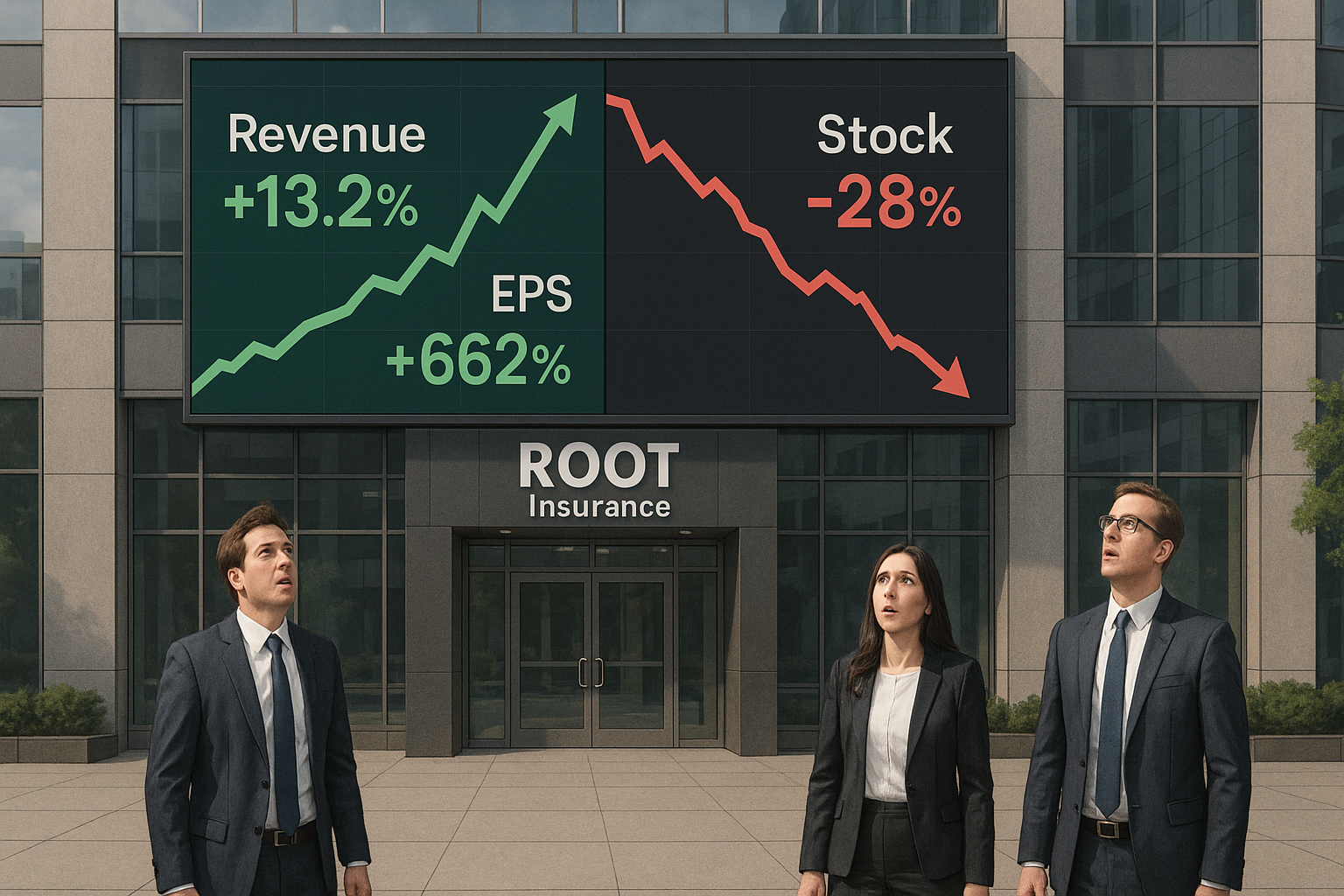When ROOT Insurance dropped its latest earnings report this week—an absolute barnburner by any objective measure—most reasonable folks might have expected champagne corks to start flying. Instead, investors headed for the exits like someone had yelled "fire!" in a crowded theater.
The stock plummeted 28%. For beating expectations.
Let me say that again: ROOT didn't just edge past analyst projections—they obliterated them. We're talking about a 13.2% revenue beat and an earnings-per-share figure that exceeded expectations by a mind-boggling 662%.
And Wall Street's response? "Thanks, but no thanks."
I've covered financial markets long enough to recognize when something doesn't add up. This is one of those head-scratching moments that makes you wonder if everyone's reading the same earnings report.
The numbers themselves tell a compelling story. ROOT posted $382.9 million in revenue against estimates of $338.35 million. On the earnings front, they delivered $1.457 per share when analysts were expecting a modest $0.22. In any rational market, results like these would trigger analyst upgrades faster than you can say "bull market."
But here's where things get truly bizarre—ROOT now trades at valuations that border on the absurd. We're looking at a forward P/E ratio hovering in the low 4s and a PEG ratio below 0.1.
For those who don't speak finance-ese, that's extraordinarily cheap. Most value investors start salivating when they see a PEG ratio below 1.0. Below 0.1? That's like finding a Rolex in the dollar bin at a yard sale.
"The market can remain irrational longer than you can remain solvent," Keynes supposedly said. Looking at ROOT, I'm reminded why that quote has endured.
The valuation disconnect becomes even more pronounced when you stack ROOT against its peers:
- KNSL with a PEG of 2.27
- WRB sitting at 2.05
- TRV at 2.04
- CB at 1.78
- HIG at 1.53
- PGR at 1.46
- RYAN at 1.34
- ALL at 1.24
And then there's ROOT... at less than 0.1.
It's not like ROOT is some obscure also-ran, either. They've built partnerships with automotive heavyweights like Hyundai and Toyota. They're expanding their state footprint (now operating in 35 states) and growing their independent agent network. By any reasonable metric, this is a company with solid growth vectors that could support impressive compound annual growth rates.
So what gives? Why the disconnect?
Part of it might be what I call the "boring business discount." Insurance isn't exactly the belle of the investment ball. While tech bros are drooling over the latest AI chip manufacturer, insurance stocks often get overlooked—regardless of performance.
Then there's institutional memory. ROOT had a rough go early in its public life, struggling with customer acquisition costs and loss ratios. Markets, like elephants, never forget. Sometimes they're painfully slow to recognize when a company has turned things around.
Look, I'm not suggesting ROOT is guaranteed to 10x from here. Nothing in markets is guaranteed except uncertainty and the occasional bout of mass delusion. But when a company can deliver triple-digit earnings beats and still trade at a fraction of its peers' valuations... well, something doesn't add up.
These moments—when sentiment and fundamentals temporarily part ways—often create the most interesting investment opportunities. It's like watching a rubber band stretch further and further. Eventually, it either snaps back or breaks entirely.
For now, ROOT continues executing its growth strategy while trading at what can only be described as distressed-asset prices. It's one of those rare situations where you get growth potential packaged in a value wrapper—sort of like finding a racehorse selling for the price of a pony.
Will the market eventually recognize this mispricing? History suggests it will. The question is when—and whether investors have the patience to wait for the correction.
